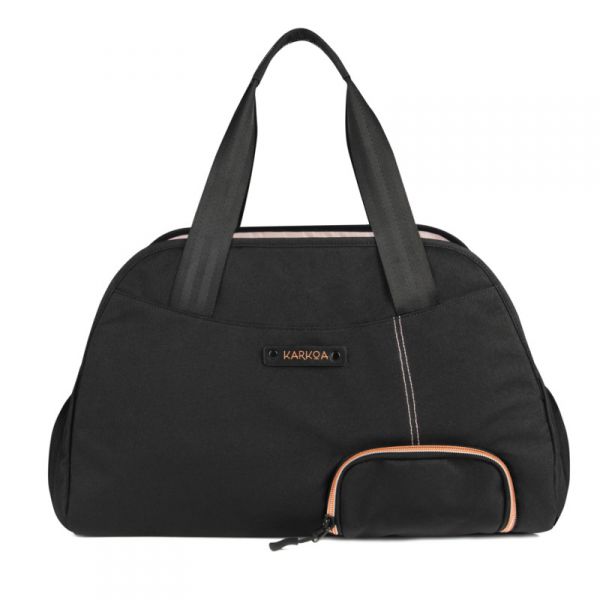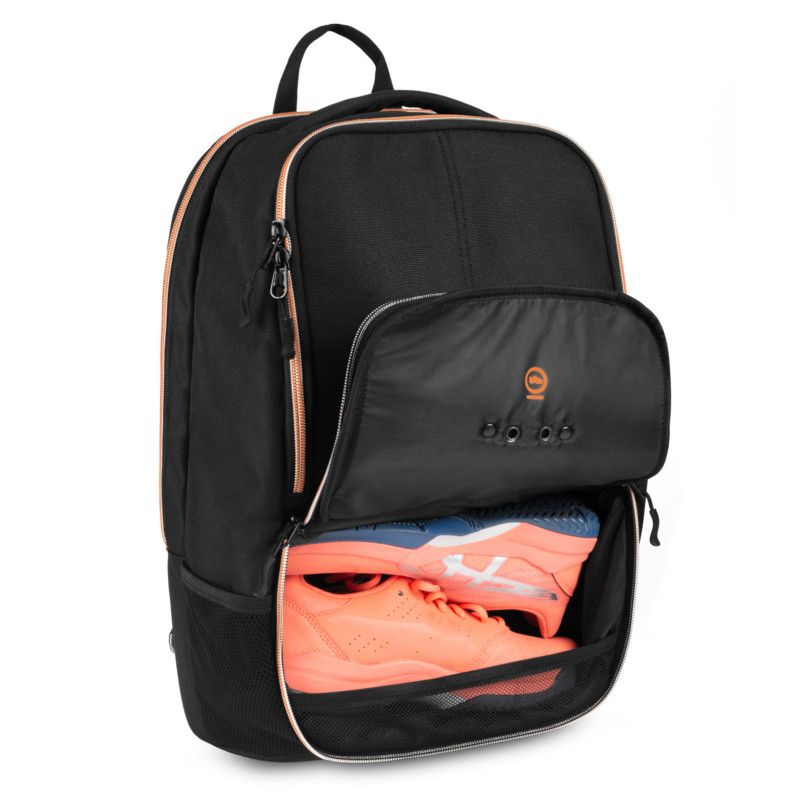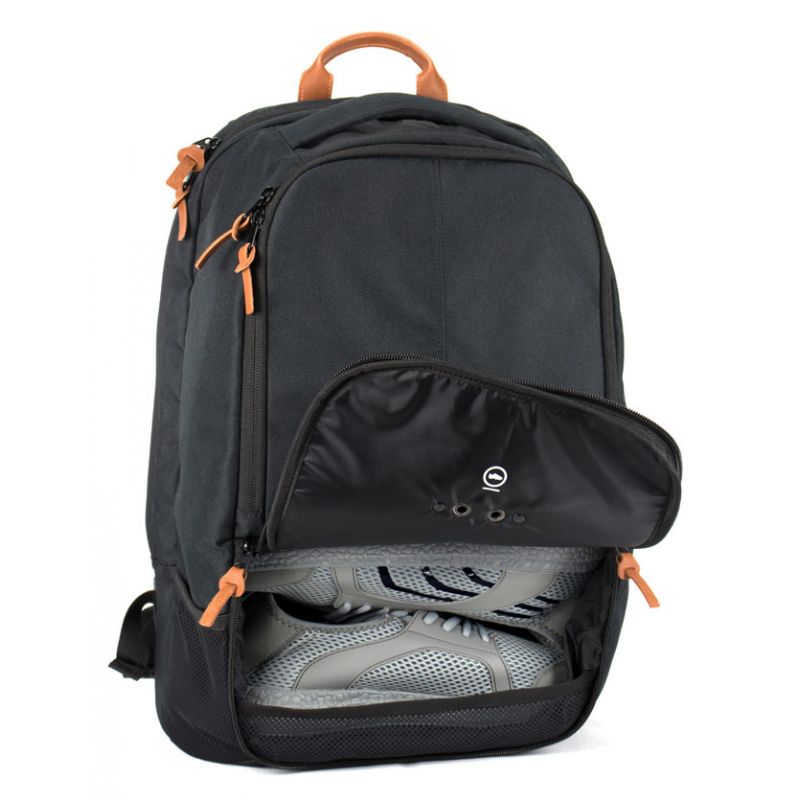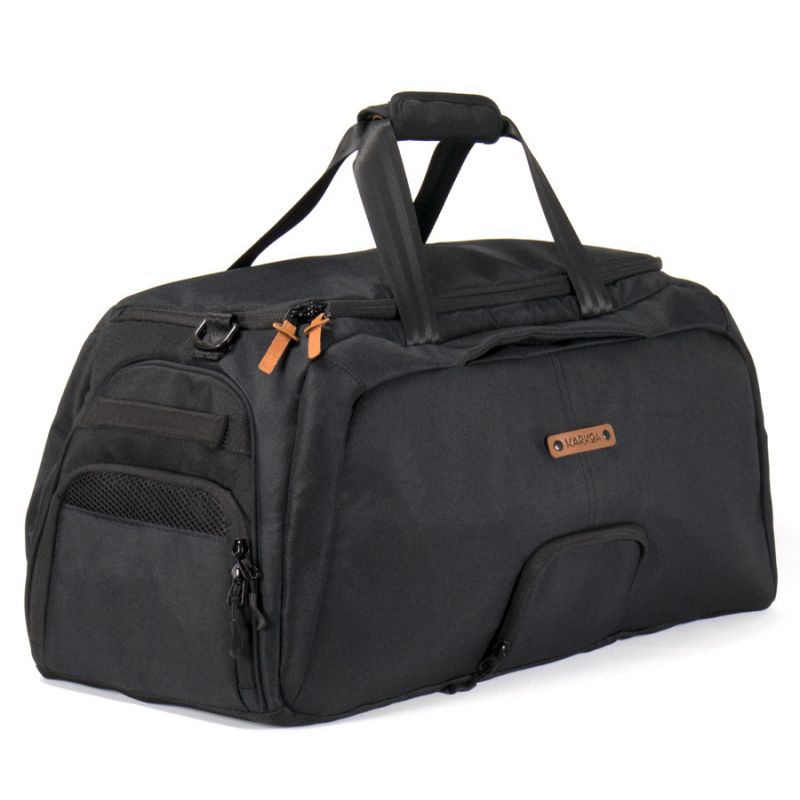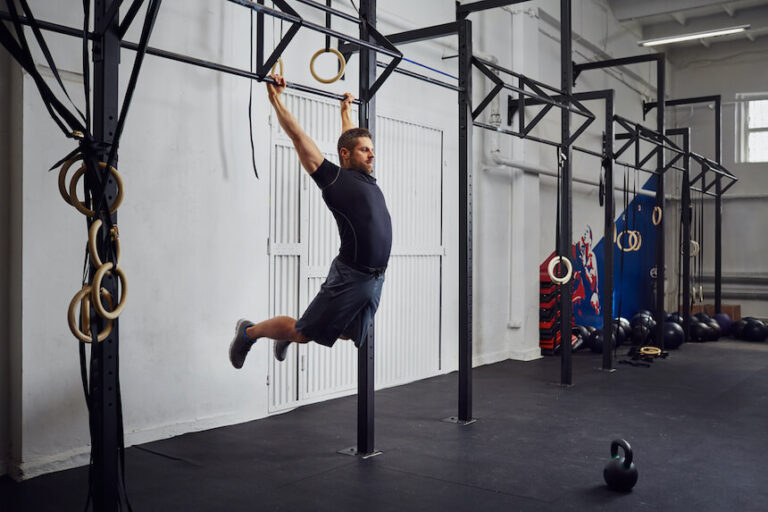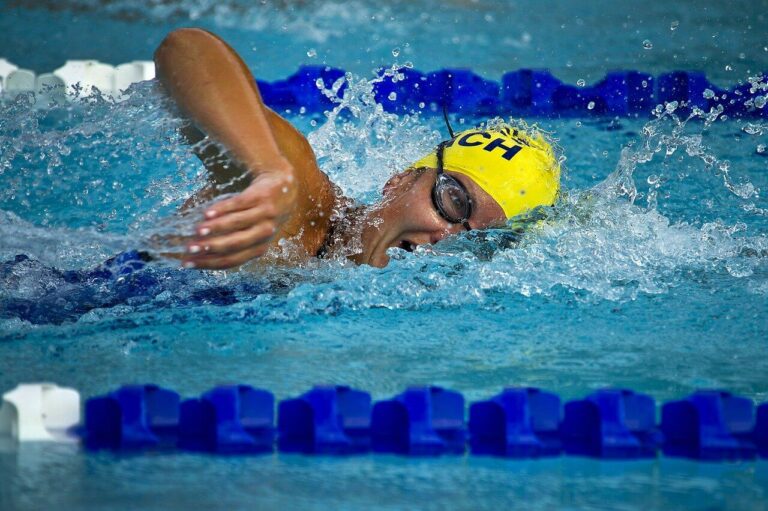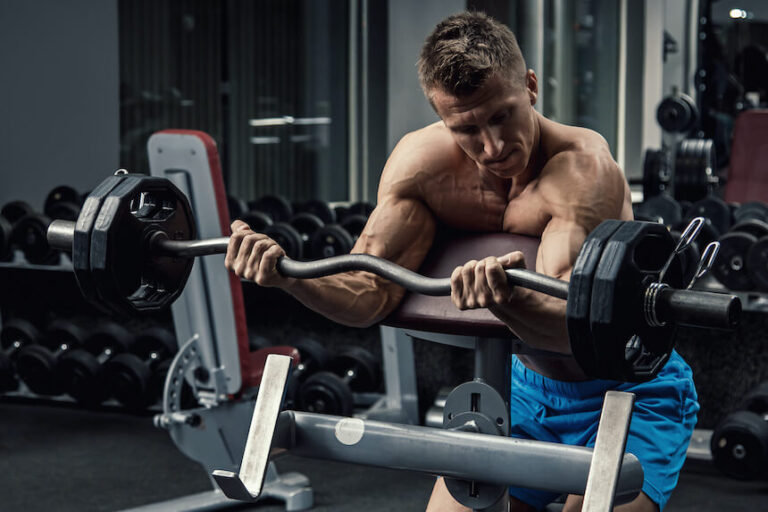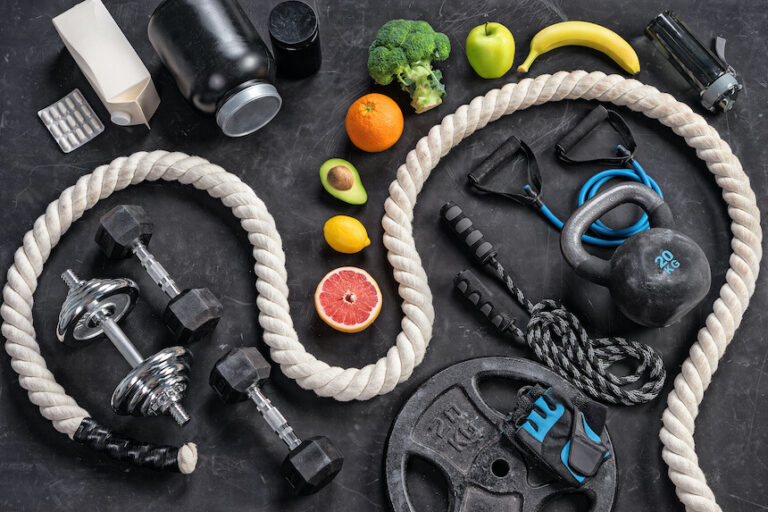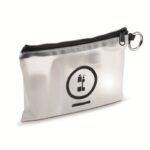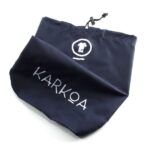You’ll find all sorts of information on what to eat after sport on the internet. This article is based on real scientific studies to help you determine which foods are best after your sports session.
You will also discover:
- What are the specific benefits of a post-training meal?
- What is the ideal combination of macronutrients to maximise performance?
- How soon after exercise should you eat?
- What role do carbohydrates play in muscle recovery?
- Recipe ideas to enjoy after sport;
- And much, much more…
1- 4 proven benefits of a post-sport meal
Numerous studies have shown the benefits of proper nutrition after sports training. In particular, a meal after sport helps to:
1) Prevent muscle breakdown
An intense training session creates microscopic tears in your muscle fibres. If the right nutrients are not provided before and/or after training, these tiny tears can lead to further muscle breakdown. This is because your muscle will break down to form the proteins your body needs to regenerate.1
2) Increase protein synthesis
After an intense training session, your body is biochemically ready to burn its nutrients. Your muscles are very sensitive to insulin, which means that the carbohydrates you eat, by creating a spike in insulin, can help transport proteins into your muscles, instead of converting them into fat. Insulin is a storage hormone with a bad reputation for being involved in fat storage. However, after a workout, insulin combined with protein can improve muscle building.2
3) Recover more quickly
A post-training meal taken at the right time with the right nutrients can promote muscle recovery.3 And if you’re able to recover in just one day instead of 2 to 3 days, it means you’ll be able to train more frequently, which will probably lead to better results.
4) Replenish glycogen stores
Whatever the type of sport, if you train intensely, your body will use glycogen as fuel. Glycogen, which is stored in your muscles and liver, is your body’s energy source for training sessions. Depending on the duration, type and intensity of exercise, glycogen stores can be depleted. Eating plenty of carbohydrates after a workout can not only support protein synthesis, but also help replenish energy stores 4 so you feel great for the rest of the day.
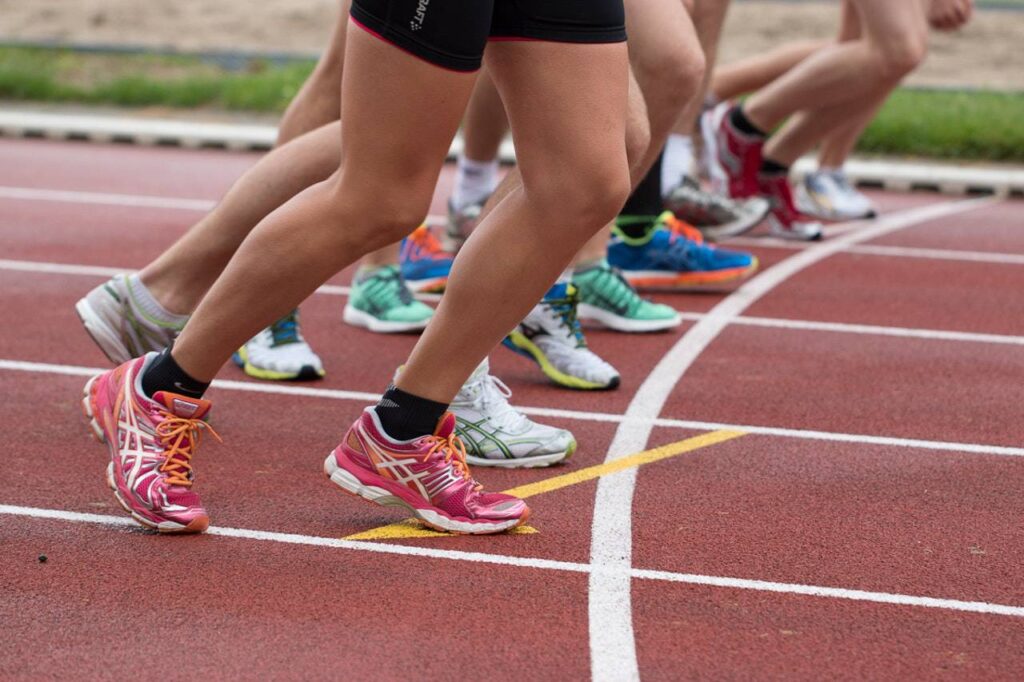
Understanding macronutrients
Think of macronutrients as the building blocks of your food: proteins, carbohydrates and fats. These three elements are part of a balanced, healthy diet that allows your body to perform at its best. But how do macronutrients affect the body after sport? And why is it essential to understand this for your muscle recovery?
2 – Carbohydrates help recovery
Carbohydrates help to replenish the glycogen reserves you burn up during sport.
Your body’s glycogen stores are used as fuel during exercise, and consuming carbohydrates after training helps to replenish them.
The rate at which you use up your glycogen reserves depends on the activity you do. For example, endurance sports cause your body to use more glycogen than resistance sports such as weightlifting.
For this reason, if you take part in endurance sports such as cycling, running or swimming, you may need to consume more carbohydrates than a bodybuilder.
Consuming 1.1 to 1.5 grams/kg bodyweight within 30 minutes of training results in good glycogen regeneration 5.
In addition, insulin secretion, which promotes glycogen synthesis, is better stimulated when carbohydrates and proteins are consumed at the same time. Therefore, consuming carbohydrates and protein after exercise can maximise protein and glycogen synthesis 6.
Try to consume both in a 3:1 carbohydrate to protein ratio. For example, 40 grams of protein and 120 grams of carbohydrates 7.
Eating plenty of carbohydrates to replenish glycogen stores is particularly important for people who do frequent sports, for example once or twice a day. If you have 1 or 2 rest days between training sessions, this becomes less important.
Carbohydrates after sport – What you need to know
Endurance sports require the consumption of carbohydrates after sport to replenish the body’s glycogen reserves. This is particularly important for athletes who train daily.
Here are some foods that contain a lot of carbohydrates:
- brown rice,
- potatoes,
- sweet potatoes,
- pasta,
- Oat flakes,
What to eat after sport – Recipe idea for a carbohydrate-rich dish: enchiladas with kidney beans and avocado
Vegan enchiladas contain quinoa and kidney beans to keep you full for hours, while heart-healthy avocado adds a creamy texture. Classic wheat flour can be supplemented with almond, coconut or gluten-free flour. Pop them in the oven and enjoy!
3 – Proteins help repair and develop muscles
There’s a reason why bodybuilders like to drink protein shakes after training. This is because physical exercise triggers the breakdown of muscle proteins.
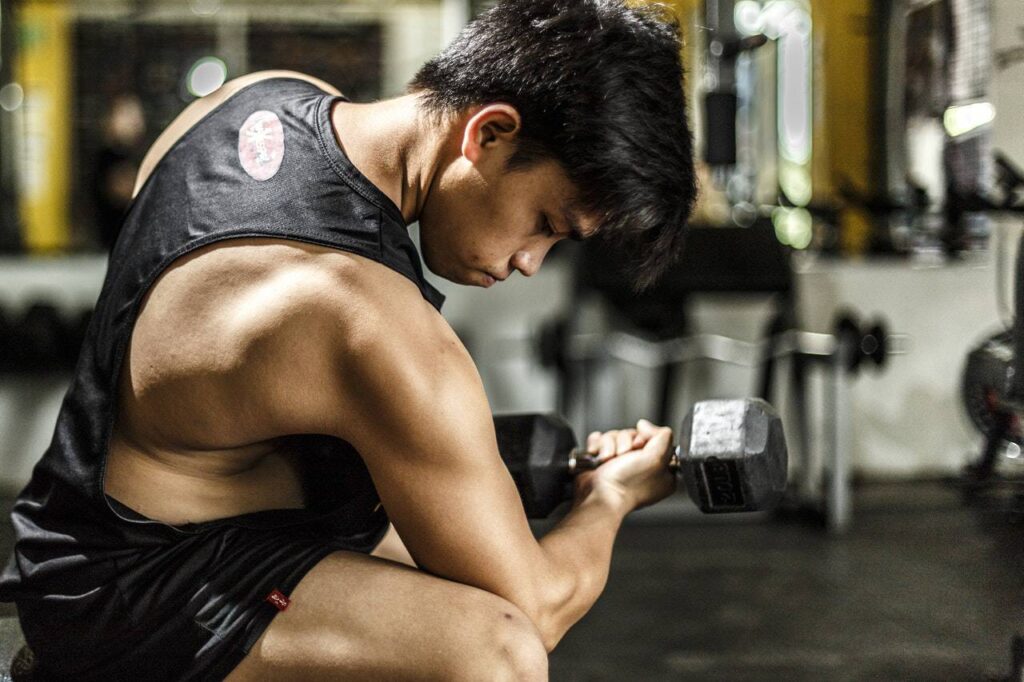
The rate of breakdown depends on exercise and your level of training, but even well-trained athletes experience muscle protein breakdown.
Consuming an adequate amount of protein after a workout gives your body the amino acids it needs to repair those proteins 8, and also to rebuild new muscle fibres 9.
This study recommends consuming 0.3 to 0.5 grams of protein per kilogram of bodyweight to recover quickly from your workout. That’s around 21-35 grams of protein for a 70kg person, which supports several other studies that say 20-40 grams of protein is ideal for good post-workout recovery 9,10.
Protein after sport – What you need to know
Muscle-building or ‘strength’ sports require the consumption of protein after sport to help rebuild muscle tissue.
Examples of protein-rich foods:
- chicken,
- fish,
- eggs,
- Greek yoghurt,
- cottage cheese,
- tofu,
- seeds (soya, hemp, pumpkin, fenugreek),
- protein powders (based on plants or animal products).
What to eat after sport – Chicken thighs with sweet potatoes, corn and baked kale
In this dish, chicken thighs, onions, sweet potatoes and kale are lightly browned in a frying pan and then placed in the oven for around 30 minutes. This colourful dish is tasty and contains everything you need after sport.
4- Fat is not bad
Many people think that eating fat after a training session slows down digestion and inhibits the absorption of nutrients.
Although fat may slow down the absorption of your post-workout meal, it won’t reduce the benefits.
For example, one study showed that whole milk was more effective at promoting muscle growth after a workout than skimmed milk 11.
What’s more, another study showed that even when ingesting a fat-rich post-training meal (45% of energy from fat), muscle glycogen synthesis was unaffected 12.
It’s certainly still a good idea to limit the amount of fat you eat after sport, but having a little fat in your post-workout meal won’t affect your muscle recovery.
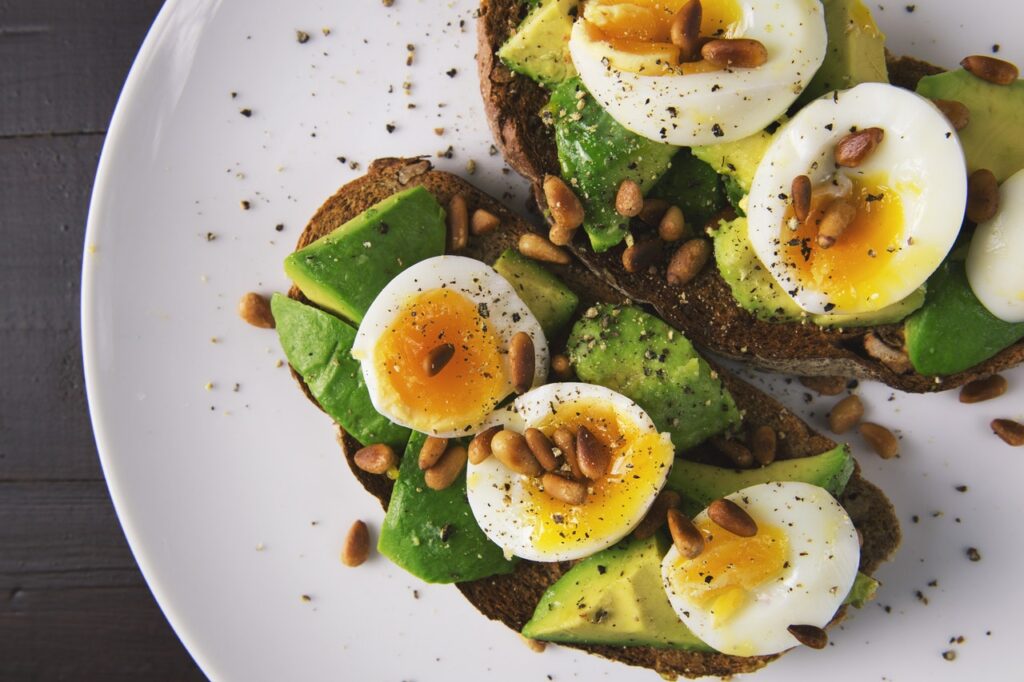
Examples of fats that can be included in your meal after sport:
- nuts,
- nut butter,
- of the lawyer.
What to eat after sport Vegetarian nut bread
Homemade nut bread is an excellent idea for a post-training vegetarian meal. And why is that? Because it can be prepared in advance and is loaded with healthy, tasty ingredients! Tip: You can garnish it with fresh herbs to bring out the flavour.
5- When should you eat after sport? The right timing
Eating immediately after a training session helps to rebuild glycogen reserves more quickly and strengthen muscle tissue, maximising the effects of sport 13.
Studies suggest that the rate of glycogen synthesis can decrease by 50% if carbohydrate consumption is delayed for two hours after the training session. 14, 15
Based on studies such as these, it is recommended to consume a combination of carbohydrates and proteins as soon as possible after exercise. The 30-45 minute period after sport is known as the ‘window of opportunity’ to help maximise the effect of training and ensure proper recovery.
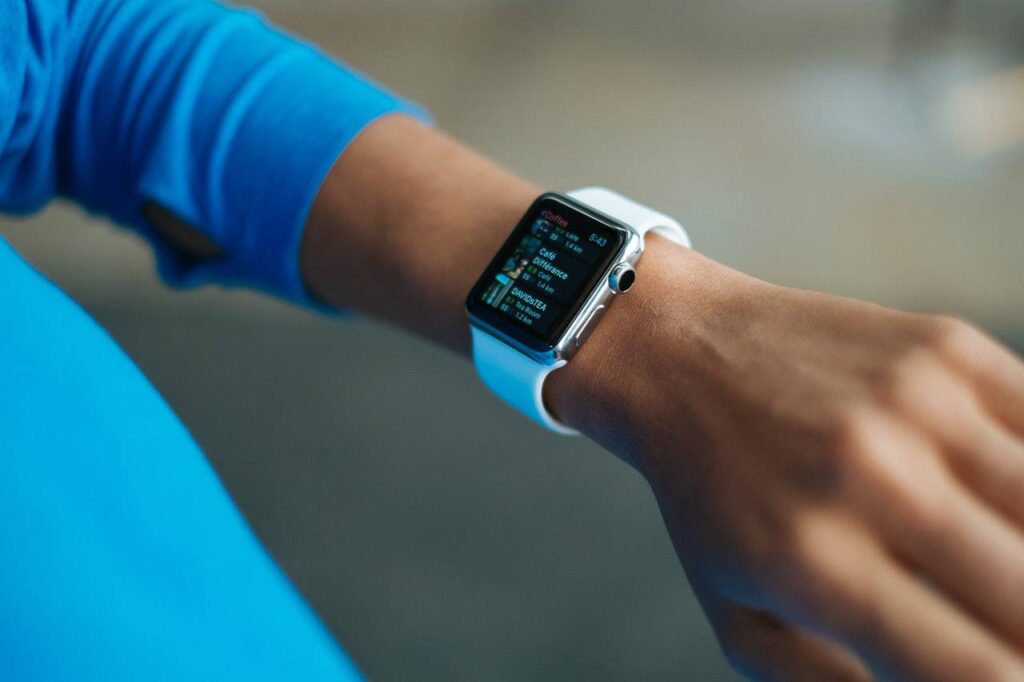
However, if you ate a meal within 3 hours of exercising, it’s likely that the benefits of that meal still apply after training and the post-training meal is no longer as crucial.16
When should you eat after sport? Things to remember
There is a 45-minute ‘window of opportunity’ after sport, during which carbohydrate and protein consumption optimises muscle strengthening and physical recovery.
6 – Hydrate first and foremost
This advice should probably have been quoted first. Your body needs water. And you should drink plenty of water, before, during and after training.
During exercise, you lose water and electrolytes through perspiration. Dehydration and a disturbance in hydro-electrolyte balance can affect sporting performance. 17
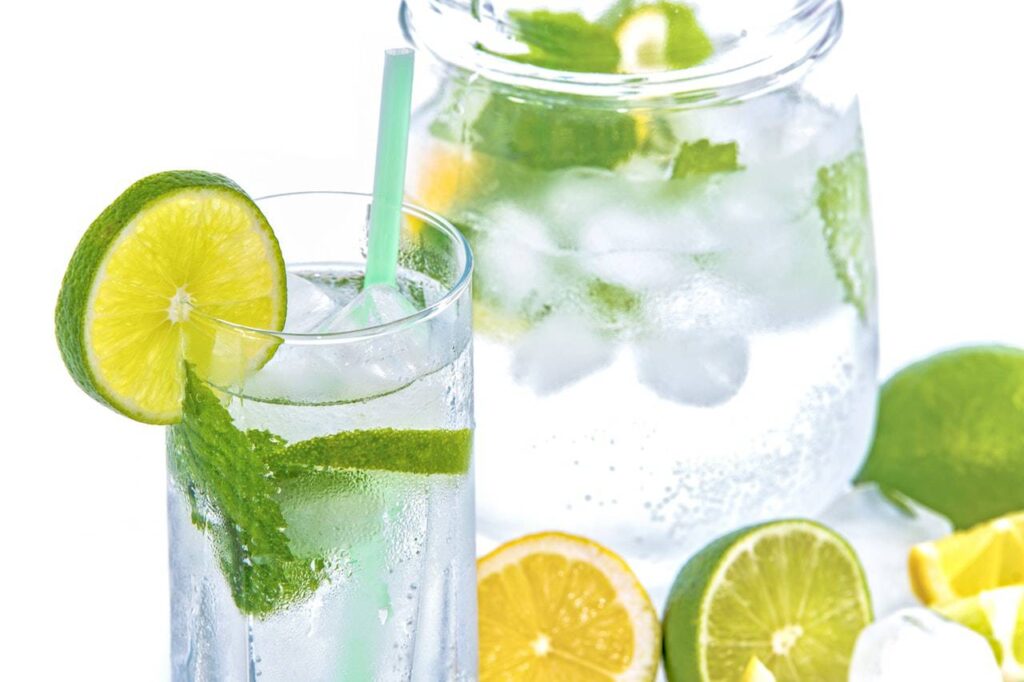
On the contrary, when you are well hydrated, it ensures an optimal internal environment for your body to perform at its best.
One way to determine your general state of hydration is to check the colour of your urine first thing in the morning. According to the Academy of Nutrition and Dietetics, straw-coloured urine is a sign of adequate hydration, while dark-coloured urine, such as apple juice, indicates a water deficit.
Although there is no universal method for determining fluid requirements during exercise, a good starting point is to drink around two glasses of water 2 to 3 hours before exercise and one glass 10 to 20 minutes before training. The aim is to minimise the risk of dehydration, which can lead to a lack of energy, muscle cramps or spasms.
You should also try to stay hydrated throughout your workout. Consider drinking a glass of water every 15 to 30 minutes of intense physical activity, especially if you sweat a lot or train in a hot environment.
After your training session, and depending on its intensity, it is advisable to drink water or a drink rich in electrolytes to compensate for fluid loss.
Ideally, a person should consume the same amount of water as was lost in sweat during training. This is difficult to measure, however, and thirst remains a good guide to determining the amount of water you need after a training session. So try to listen to your body.
What to drink after sport? Coconut water, the 100% natural rehydrating drink
Coconut water is an ideal drink for rehydrating after sport. Rich in electrolytes (potassium, sodium, magnesium), it contains no artificial ingredients. And the natural minerals contained in coconut water are particularly well absorbed by the body.
7 – Protein drinks or bars for rapid recovery after sport
Cereal bars or protein bars are a great idea for a post-sport snack. They are relatively filling and easy to carry in your Karkoa sports bag. Their cereals help to replenish your energy reserves and the proteins help to repair your muscles after training.
Protein drinks can also be used to top up your energy levels after sport. Nutrients are digested quickly when consumed in liquid form. Smoothies, milkshakes or protein drinks are therefore excellent to have after your training session.
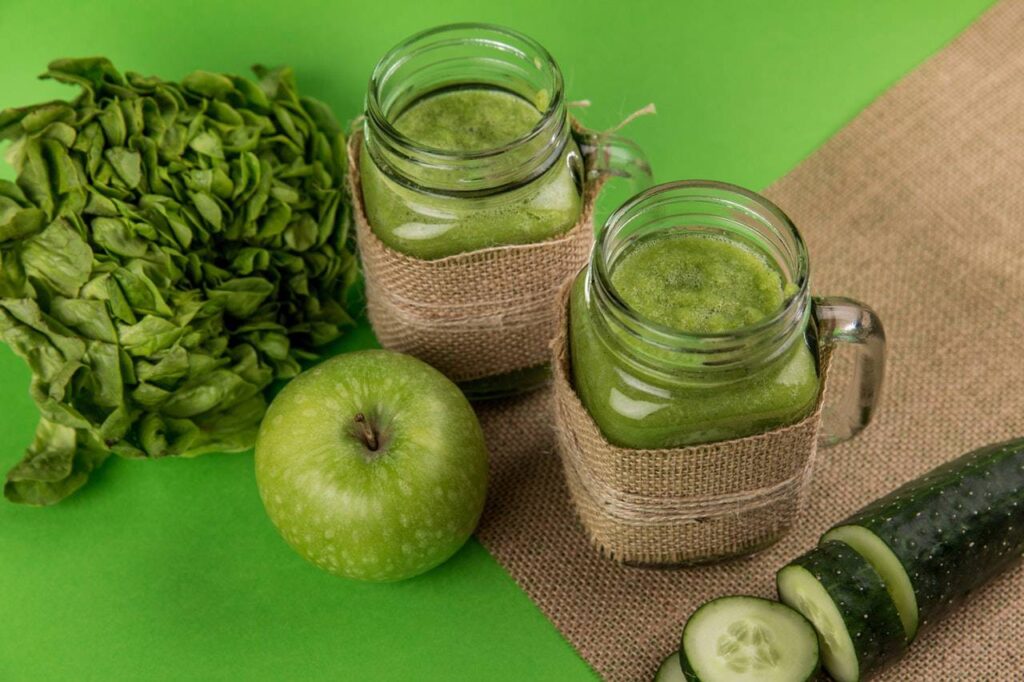
What to eat after sport – Recipe for a green protein smoothie
A green smoothie after sport is a good idea, and you can add unsweetened protein powder to the mix.
Using your blender, blend :
- a handful of spinach shoots,
- a banana,
- a handful of your favourite nuts,
- a spoonful of protein powder,
- cinnamon,
- and two cups of almond milk.
It’s green but it’s so good!
Equipping yourself to eat well after sport
The Karkoa compartmentalised sports bag will be your ideal accessory for taking your post-workout snacks with you. Don’t hesitate to discover the entire Karkoa range to find the bag that’s right for you!
